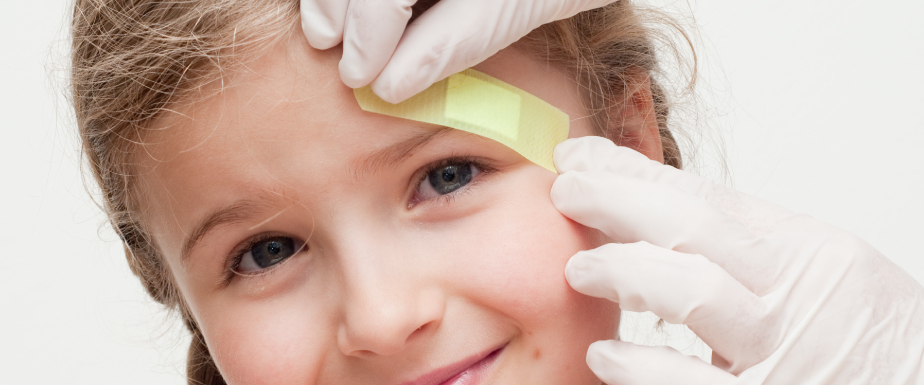Dental emergencies
Dental emergencies occur often in young patients. Though some can require urgent treatment, it is important to remain calm while determining the course of action. Dental emergencies are any trauma, infection or condition that requires immediate attention. Patients may present with symptoms of associated pain, discomfort and also pathology.
Rest assured our dedicated team of specialists will ensure that your child is appropriately managed and smiling once again.
Approximately one-third of babies and toddlers sustain oral trauma as they are prone to accidents around the home, in the playground or at childcare. As a result of trauma, baby or primary teeth can be chipped, displaced or knocked out completely. Often, the lips, tongue and gums can also be damaged. Dental trauma also has a high prevalence in school-aged children who are active in outdoor activities and sport. The most commonly affected teeth are the upper front teeth.
Custom fitted mouthguards worn whilst playing contact sport can also help to prevent trauma. Usually, the trauma we often see is due to unforeseen accidents.
Here are some useful first aid tips to manage the most frequent dental emergencies.
What to do in case of an injury to the tongue, lip or cheek?
- comfort your child
- provide pain relief if required
- apply an ice pack to the affected area to relieve pain and minimise swelling
- if bleeding, apply firm pressure with a clean cloth
- if bleeding cannot be controlled contact us or your family doctor immediately
- assess if any teeth are displaced, broken or chipped
- contact us for assessment and management of the injury
What should I do if my child’s teeth are broken or chipped?
- provide pain relief if required
- clean injured areas with water and apply a cold compress to minimise swelling
- collect all tooth fragments and place in plastic wrap/bag
- contact us to examine for any associated injuries of the lip or soft tissues
- treating the broken tooth quickly may help to save the tooth, minimise risk of infection and reduce the need for extensive dental treatment
What should I do if my child’s PERMANENT tooth is knocked out?
TIME IS A CRITICAL FACTOR IN SAVING THE TOOTH!
- find the tooth
- determine whether primary or permanent tooth
- baby/primary tooth: do not re-implant!!
- Permanent tooth: best to re-implant ASAP
- if the tooth is dirty, gently suck the tooth clean
- alternatively, rinse the tooth in milk or saline and then re-implant
- if unable to re-implant tooth, store tooth in milk, saliva or saline
- do not handle the root of the tooth or scrub/scrape the root
- provide pain relief as needed
- seek urgent dental treatment
- time is a critical to prevent permanent damage!
What should I do if my child presents with a toothache or swelling?
.
How do we manage dental emergencies at Children’s Dentistry?
In order to render the most appropriate treatment for paediatric dental emergencies, numerous considerations must be included in the decision making process.
The following are some of the ways our specialists would manage your child’s dental emergency:
- provide reassurance
- assess extent and type of soft and hard tissue injuries
- give palliative care for post-operative/injury healing at home
- conduct a thorough intraoral examination
- take any x-rays to assess the extent of injury or infection
- complete any additional special tests to assess the status of the pulp and oral tissues
- assess need for pain relief or antibiotics
In order to render the most appropriate treatment for paediatric dental emergencies, numerous considerations must be included in the decision making process.
Appropriate preventive/emergency management at the time of injury or infection minimizes post-operative complications.
Why is follow up care following emergencies important?
Following the emergency consultation, regular dental review appointments will be arranged. These are important to monitor and assess any symptoms and signs indicating pathological changes post dental traumatic injuries.
Successful and appropriate emergency treatment following dental trauma or infection in paediatric patients is critical as this ultimately affects the outcome and determines the success of future treatment and the long term prognosis for injured or infected dental tissues.
It is important for parents to monitor the affected tooth/teeth for symptoms and signs indicating pathological changes such as an abscess, swelling, dark discolourations of the crown, increased mobility or draining sinus. If any of these present, parents need to bring their child in to see us as soon as possible.

